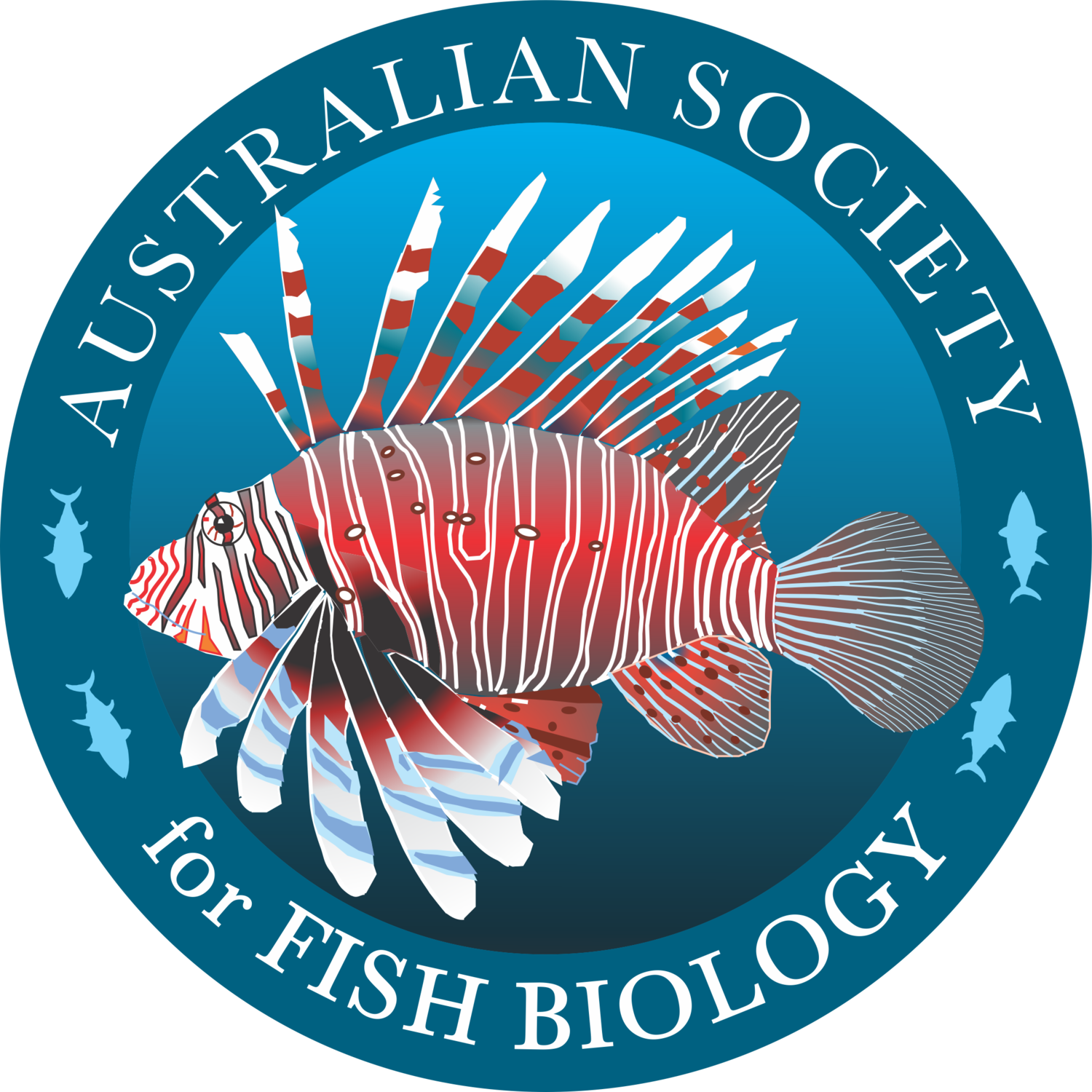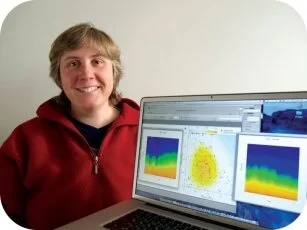Beth Fulton
K.R. Allen Award Winner 2019
Dr Beth Fulton is a mid-career research scientist at CSIRO Oceans and Atmosphere, in Hobart. Raised in Goulburn, NSW, she studied marine biology, maths and statistics as an undergraduate and honours student at James Cook University. At the University of Tasmania, Beth completed her PhD in 2001, innocuously titled “The effects of the structure and formulation of ecosystem models on model performance”. Little did this foreshadow that Beth would soon begin development of an ecosystem model to do everything. This Atlantis model, based in her PhD but extended and applied in many regions around the world, has helped propel Beth into the category of excellence that ASFB seeks to recognize in its Hall of Fame. Her strongest research contribution has been as a leading developer of amongst the first end-to-end (or whole-of-system) models which give equal attention to biophysical and human components of marine ecosystems, but she has also been an advocate for in situ data collection in marine systems.
Beth has been recognized as a high performer since her early career stage – with undergraduate prizes culminating in a University Medal in Marine Biology and Mathematics and Statistics and the Palmerston-Rundel Prize for Best Honours in Biological Sciences at James Cook University. Her PhD work was also recognised by the RoyalSociety of Tasmania. In 2007, Beth helped propel marine science into the public consciousness when awarded the Science Minister’s Prize for Life Scientist of the Year– these awards are part of the Australian Prime Minister’s Science Prizes. She kept working away at the Atlantis family of models, developing versions for use in different parts of Australia, aided by funding from CSIRO to build a modelling support team. These Atlantis models, each tuned to a particular region and situation, are now used in more than 30 systems in more than a dozen countries around the world.
Along the way, Beth has worked with many students and early career researchers, both as a formal and informal mentor. Some 15 PhD students and 6 Post-docs have been directly guided by her. One of her faults is to agree to just about anything – so getting emails sent from her at all hours of the night might be due to her work patterns, or travel to far off locations.
A career highlight came in 2010, when Beth was awarded a prestigious Pew Marine Conservation Fellowship. As part of this Fellowship, Beth was able to advance development of Atlantis models applicable to support management decisions across a diverse range of systems, but focusing on Indonesia and Antarctica.
Beth is a sought-after speaker at conferences and symposia, and in such situations, is always generous in her recognition of her collaborators. Her extensive international engagement, and some 100 peer-reviewed publications and book chapters (including in Nature and Science), show that Beth is recognised as a thought-leader around the world. Her international service has included stints as an editor on special journal issues, and an ongoing role with Conservation Letters.
Despite a modelling focus, she has always recognised the importance of long-term in situ benthic, fish and plankton datasets. Thus, recognition by ASFB in the area of ecosystem modelling is not out-of-place. Beth Fulton has been instrumental in raising the importance of fisheries research, management and conservation in Australia and internationally. Many more years of research are ahead for Beth, and many of us will have the pleasure of working with her in the years ahead.
Selected publications:
Fulton, E.A., Bax, N.J., Bustamante, R.H., Dambacher, J.M., Dichmont, C., Dunstan, P., Hayes, K.R., Hobday, A.J., Pitcher, R., Plagányi, E.E., Punt, A.E., Savina-Rolland, M., Smith, A.D.M., Smith, D.C. 2015. Modelling MPAs: Insights and Hurdles. Phil. Trans. R. Soc. B 370: 20140278. http://dx.doi.org/10.1098/rstb.2014.0278
Fulton, E.A., Boschetti, F., Sporcic, M., Jones, T., Little, L.R., Dambacher, J.M., Gray R., Scott, R., Gorton, R. 2015. A multi-model approach to engaging stakeholder and modellers in complex environmental problems. Environmental Science & Policy, 48: 44 – 56
Fulton, E.A. Smith A.D.M., Smith D.C. and Johnson P. 2014. An Integrated Approach Is Needed for Ecosystem Based Fisheries Management: Insights from Ecosystem-level Management Strategy Evaluation. PLoS One. Citations: 25
Fulton, E.A., 2011. Interesting times: winners and losers and system shifts under climate change around Australia. ICES Journal Marine Science 68: 1329-1342. (doi:10.1093/icesjms/fsr032) Citations: 57
Fulton, E.A., Link, J., Kaplan, I.C., Johnson, P., Savina-Rolland, M., Ainsworth, C., Horne, P., Gorton, R., Gamble, R.J., Smith, T., Smith D., 2011. Lessons in modelling and management of marine ecosystems: The Atlantis experience. Fish and Fisheries, 12:171-188. Citations: 175
Fulton, E.A., Smith A.D.M., Smith D.C. and van Putten, I.E., 2011. Human behaviour - the neglected source of uncertainty in fisheries management. Fish and Fisheries, 12: 2-17. DOI: 10.1111/j.1467-2979.2010.00371.x. Citations: 175
Fulton, E.A., 2010. Approaches to end to end ecosystem models. Journal of Marine Systems, 81:171-183. doi:10.1016/j.jmarsys.2009.12.012 Citations: 163
Fulton, E.A., Smith, A.D.M. and Punt A.E. 2005. Which ecological indicators can robustly detect effects of fishing? ICES Journal of Marin Science, 62: 540-551. Citations: 274
Fulton, E.A., Smith, A.D.M. and Johnson C.R., 2003. Effect of complexity on marine ecosystem models. Marine Ecology Progress Series 253: 1 – 16. Citations: 227
Beth doing what she enjoys most – exploring how we can use models to understand how marine ecosystems fit together and respond to change.


